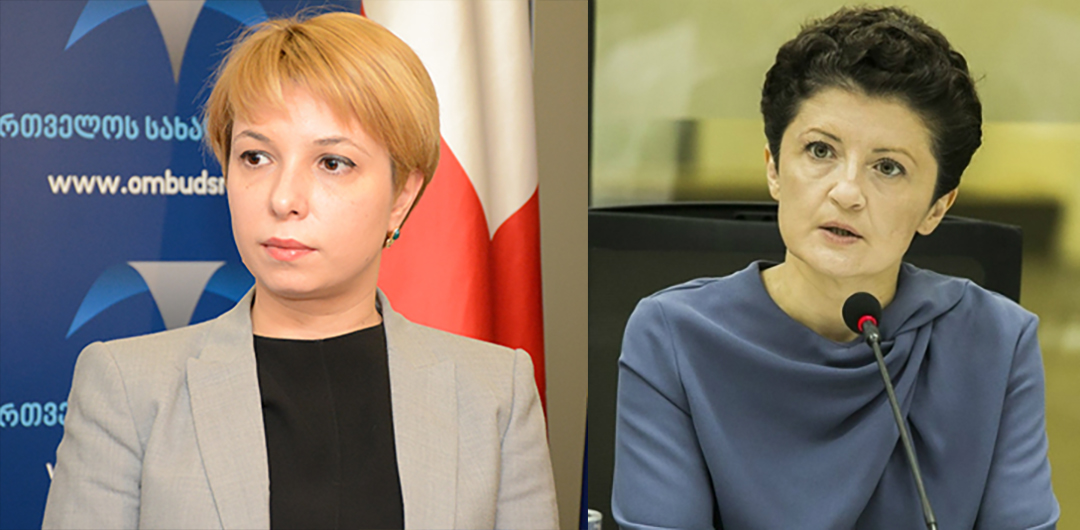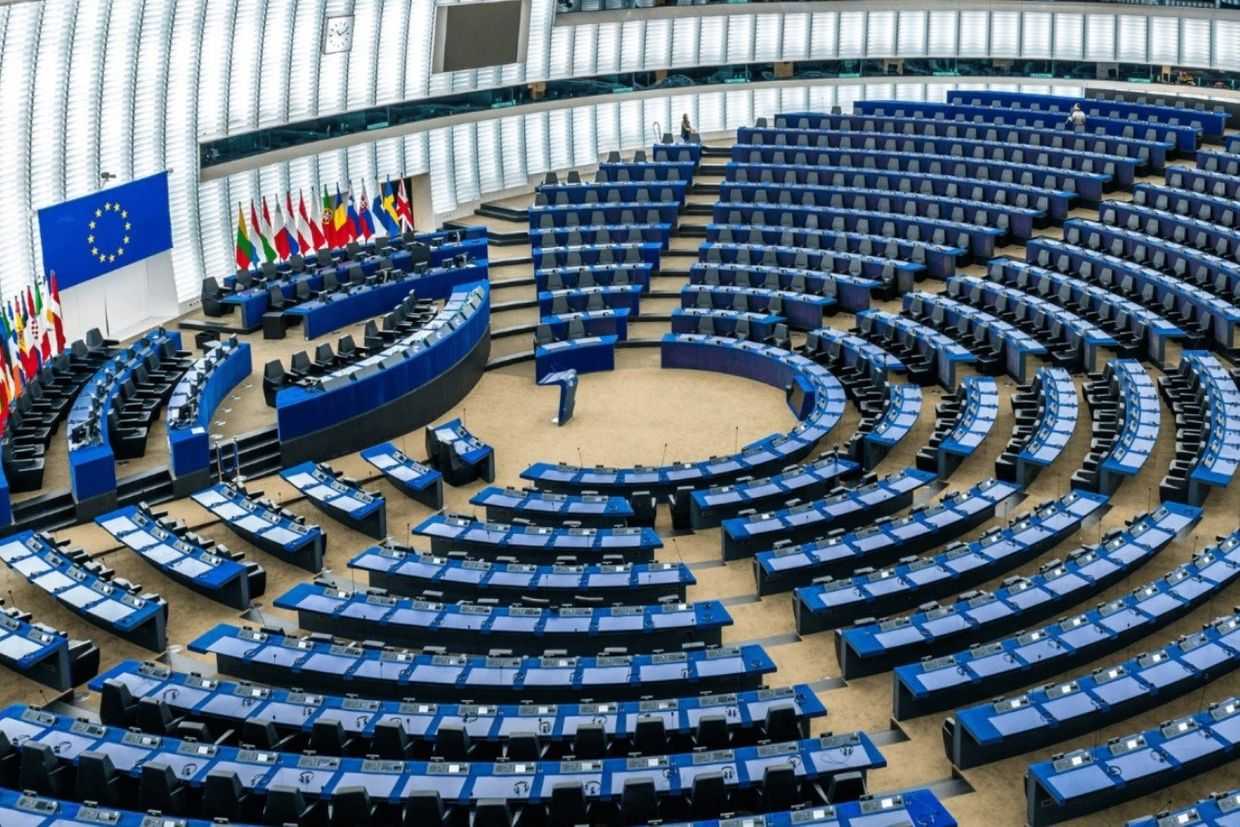

Georgian Justice Minister Tea Tsulukiani has been accused of ‘spying’ on prison monitors from the Public Defender’s Office after she published a video of one meeting a prisoner and criticised him for wearing ragged jeans and a hat.
Tsulukiani published the video on 21 January in parliament in response to a prison monitoring report presented by Public Defender Nino Lomjaria.
Lomjaria had demanded the report go before the parliament’s Human Rights Committee.
The highly critical report pointed to violations including ‘dubious injuries’ on inmates’ bodies and violence against prisoners from the prison administration and from other inmates, who were allegedly instructed to do so by the prison administration. The report also shed light on the influence of criminal authorities in prison.
Speaking before parliament, Tsulukiani attacked Lomjaria for not personally visiting prisoners enough and sending her deputy instead. She continued by criticising the competence of employees of the Public Defender’s Office.
‘The report depends on what her employees tell her. These employees include professionals and also those, a minority, who might bring her half-truths or not the truth at all’, said Tsulukiani.
She said the Public Defender had demanded the report’s hearing be scheduled that Tuesday so that she could personally question her and ‘make society think that something is being done wrong’.
She continued screening the video, criticising the appearance and behaviour of the Public Defender’s Office employee.
‘This is a representative of the Public Defender who makes an inmate make coffee for him twice, eats his chocolate, smokes his cigarette, then uses the facility toilet and conducts so-called monitoring for four hours’, said Tsulukiani.
‘This is an unfortunate example of how so-called monitoring takes place. This doesn’t happen on a large scale but is still problematic. Please do not send me employees like him who, by the way, wears ragged jeans’, said Tsulukiani, adding that it was hard to distinguish who was the inmate and who was a representative of a state institution.
‘Why should a representative of the Public Defender’s Office be wearing a Basque beret? This person wouldn’t be allowed in the opera, let alone a prison’, she said.
Finally, she criticised Lomjaria for failing to protect the chair of the ruling Georgian Dream Party, Bidzina Ivanishvili, from insults.
‘There’s not a single word on [our] progress in this report, not a single word on the struggles of our employees. Aren’t you the Public Defender of all? You are not the Public Defender of Bidzina Ivanishvili, when he and his family are insulted. I don’t remember you protecting me, I don’t need it, you are not my public defender’, said Tsulukiani.
Shortly after Tsulukiani’s speech, the video was uploaded to the official Facebook page of the Special Penitentiary Service of Georgia, run by the Ministry of Justice.
‘A gross violation’
Lomjaria responded by saying that her employee had done nothing illegal. She suggested an investigation be opened into whether a representative of the Public Defender had been spied on.
‘There are situations where it’s necessary to engage in human relations with the inmates to gain their trust. Our employees make such decisions individually, based on the situation’, she said and added that her office would look into whether it was legal for the Justice Ministry to have kept the footage for 6 months.
‘What’s more interesting is on what basis this footage was saved? Usually, when we need footage of various events, including maltreatment, it tends to appear that videos were either not saved or have been deleted’, she noted.
She added that she wished MPs had expressed more interest in the violations filed in the report rather than her work.
Tsulukiani’s statement was met with criticism from several leading rights groups.
A coalition of local non-governmental organisations including the Human Rights Centre and the Georgian Democracy Initiative issued a joint statement calling the publishing of the footage ‘a gross violation of the principles established by Georgian legislation’ and that it ‘contradicts the international obligations adopted by Georgia’.
‘We think that this move by the Justice Minister should be grounds for holding her political accountable’, said the statement.
In a separate statement on 21 January, local rights group the Georgian Young Lawyers’ Association said that the minister had violated the law on personal information by publishing the video.
The group said the video had not been saved based on any legal requirements, but for political purposes. Additionally, the video had been stored longer than it was legal to do so, they said.
GYLA called on the Special Penitentiary Service to delete the video from their Facebook page and called on the State Inspector Service to investigate.
The State Inspector Service said on 22 January that they had started investigating the legality of publishing the footage even before an official appeal by the Public Defender.
On 28 January, Lomjaria held a meeting in Strasbourg with the Council of Europe’s Commissioner for Human Rights, Dunja Mijatovic. In a Facebook post, the Public Defender’s Office said that Lomjaria has asked Mijatovic to monitor the matter and support the institution of the Public Defender.
‘No violence-free environment’ in prisons
The Public Defender’s report was based on monitoring conducted in four penitentiary establishments in July and August 2019.
It found that ‘there is no violence-free environment in the facilities, which is manifested in physical and psychological violence among inmates, criminal subculture, and the lengthy and inappropriate use of de-escalation, solitary confinement and internal classification cells’.
The report said that jails were overcrowded and there was a shortage of staff, ‘which tempts the administration to delegate the functions of conflict resolution and “keeping order” to informal rulers’.
It said that the authorities had failed to effectively detect or document alleged ill-treatment.
‘It was found that prisoners are not properly aware of their rights and responsibilities and refuse to exercise their right to complain due to the influence of criminal subculture and fear of repression’, said the report.
It was also noted that with only a few exceptions, prisoners did not complain of physical abuse from prison staff. ‘They mainly talk about psychological violence and unethical behaviour.’







